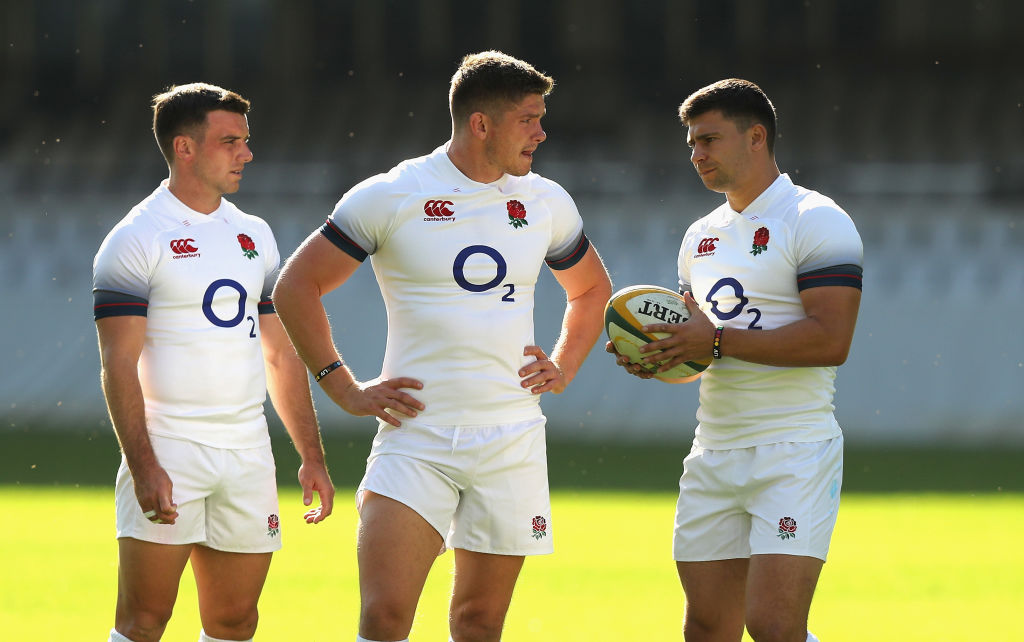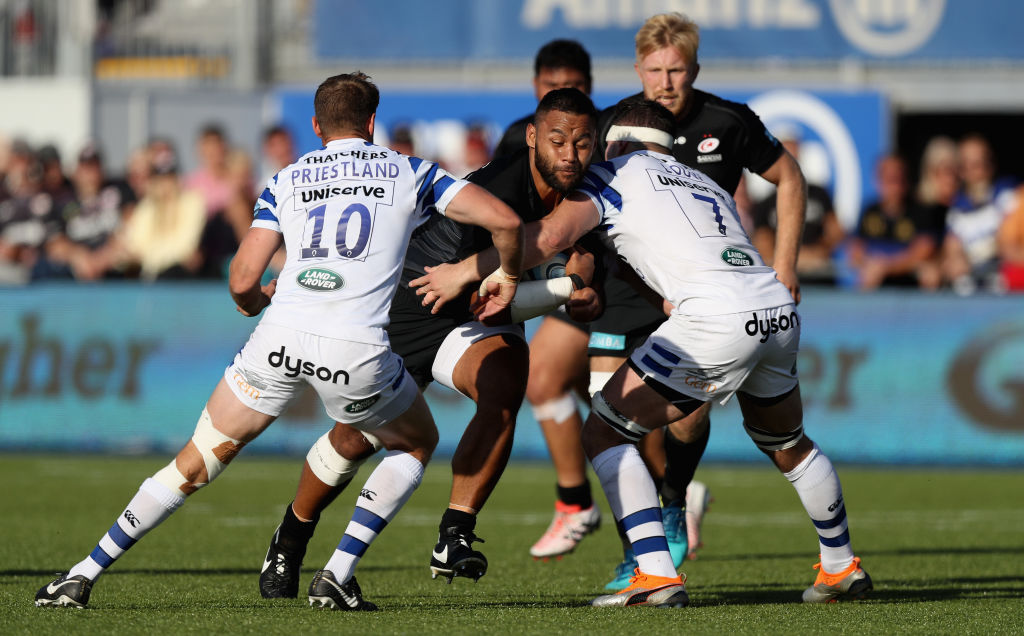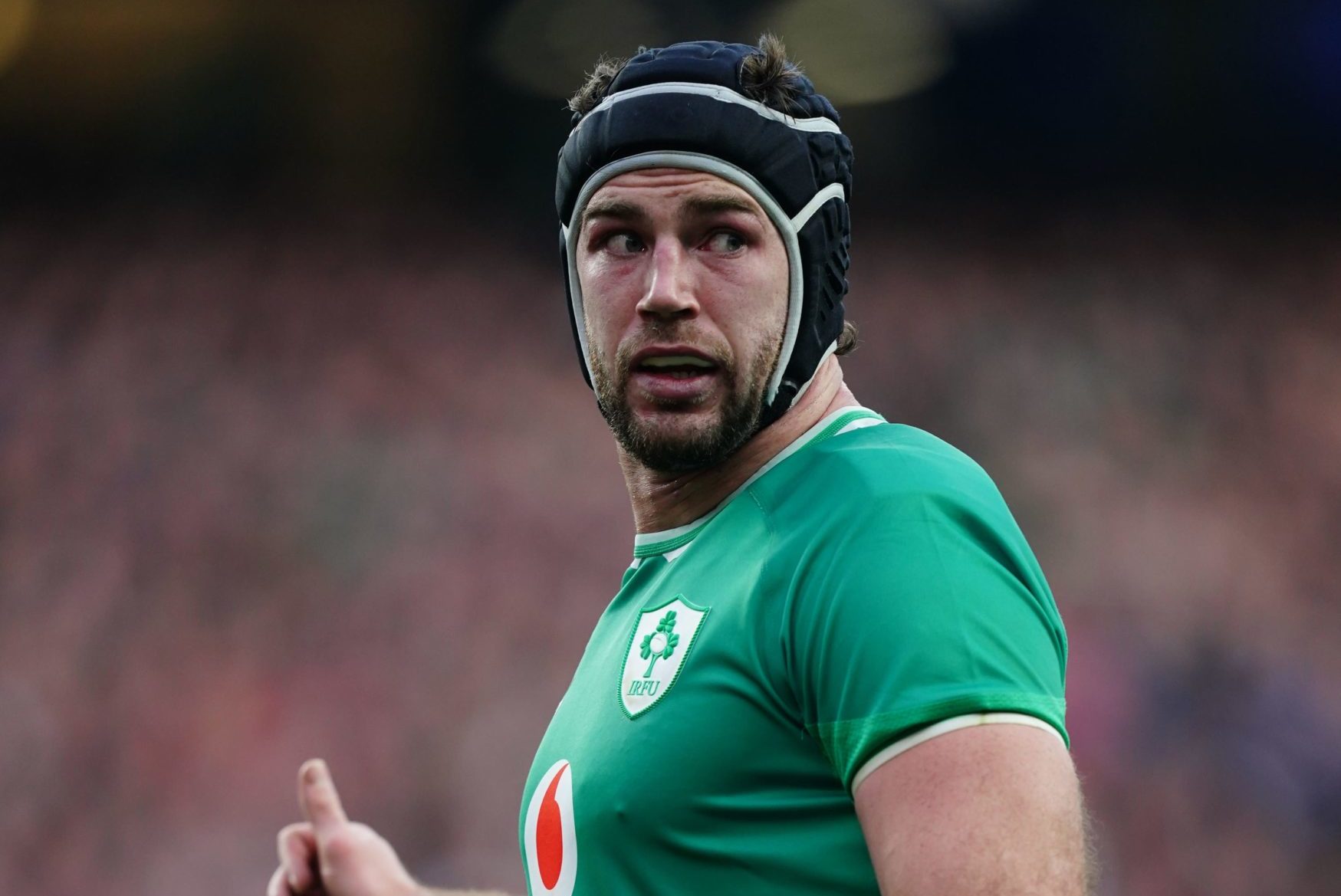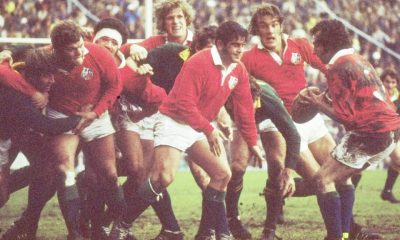
By Jeremy Guscott
When Owen Farrell and George Ford were first picked together for England as a 10-12 partnership I said that it didn’t feel quite right.
We knew that they were childhood friends who had played Rugby League together up in the north-west before switching to Union, and that they had a very close understanding on the pitch when they were playing in the England age-groups.
However, at that time they seem to be equally influential, whereas when they progressed to the senior England team it has been Farrell who has steadily emerged as the Alpha. They have shared great moments together already during the Eddie Jones era, with the Grand Slam in 2016 followed by the series victory over Australia – but since then their combination has not been as effective.
They gained a lot of respect as a 10-12 pairing in the first two seasons under Jones as they combined with Jonathan Joseph, Anthony Watson, Mike Brown and Jack Nowell – as well as bringing the best out of impact players like Ben Te’o.
It was all very smooth, with Ford and Farrell getting big raps, although Jones said consistently that he wanted to bring in a big, powerful inside-centre like Te’o or Manu Tuilagi. However, the continued fitness problems both those players have experienced has meant that so far it has not materialised.
In the meantime the Ford-Farrell double playmaker system has produced some great moments, with their passing precision to set up Elliot Daly’s last-minute winning try against Wales in Cardiff in 2017 a high point.
The only downside has been that no-one has challenged their partnership and presented an alternative, and during the run of defeats that started in the 2018 Six Nations and continued in South Africa this summer it struck me that one of the problems was that it was not the English way of playing.
If you look at how Saracens have been the dominant team in the Premiership in recent years with four titles, and how Exeter may have only one title but have been challenging all the time, it’s easy to see that they do not play the Farrell-Ford way.
Instead of having a second playmaker like Farrell at 12, Saracens are very direct at inside-centre with Brad Barritt carrying hard and straight up the middle. The same has been true of Exeter where Sam Hill and Ian Whitten have done exactly the same job, while Ollie Devoto is another capable of doing so.
Traditionally English rugby has been about strong, aggressive front fives which thrive on the momentum going forward onto the ball after a big carry by an inside-centre, and clear-out while not committing too many men to the ruck.
It’s what Saracens and Exeter do, and it creates quick, smart ball without the scrum-half having to dig and scrap for it. If you also have a big winger, like a Joe Cokanasiga, crashing up the middle you give the forwards another target man to focus on.
When Jones first took on the England job he said he was going to concentrate on traditional English strengths, but actually there has been very little aggression or quick ball of the type hard running inside-centres produce.
My reading of it is that the Ford-Farrell format is very much the Australian way of playing, and while the absence of Te’o and Tuilagi during most of Eddie’s tenure has made it more difficult to play the English way, I cannot believe he has not found alternatives.
Barritt could certainly have done a stop-gap job until Tuilagi or Te’o were fit, and the same might be true of Devoto. I cannot believe England players have not been telling Jones that – especially given the number of Saracens players in the squad.
We’re not really in tune with the Aussie game, and if you look back to whether it’s Andrew-Carling, or Wilkinson–Greenwood/Tindall, the English game has focused on providing our forwards with a clear target to hit.
It’s also interesting that teams like Wasps, which play more of an Aussie style, may be entertaining, but what have they won?

The onus: The Ford-Farrell tandem relies on the crash-ball ability of Billy Vunipola and the pack to dominate (Photo: David Rogers/Getty Images)
The Ford-Farrell format is flawed in one important sense. It puts a huge emphasis on your pack being dominant, and also being able to generate momentum from a standing start through power carriers like Billy Vunipola. That’s because without backs who can get over the gain-line you are one-dimensional and predictable – and if there are no Vunipolas you have no momentum, and nowhere to go.
You are stymied, and that is why Scotland, France, Ireland and South Africa were able to work England out last season, and stop them from getting going again.
By contrast, the benefit of the traditional English way of playing is that it is simple, straightforward and consistent. I liken the way that Saracens and Exeter play to chess, systematically building pressure so it goes check, check, check, check-mate.
That is why Jones should put Farrell at fly-half this autumn and disband the Ford-Farrell partnership. You should always go with your best 10 – which in my view is Farrell – and then play the way England need to play by using straight-running inside-centres and wings to create momentum.
My first pick at 12 would be Te’o, my second Tuilagi – but if neither are fit I would pick Barritt, and then Devoto. It is tough on Ford, because he would probably be behind Danny Cipriani as the bench 10. However, both are game changers at their best, and both are capable of keeping pressure on Farrell.
I cannot move away from where England are their strongest, and that is when they play a simple game, like Saracens and Exeter, in order to set up flair runners like Daly, Anthony Watson, Jonny May and Chris Ashton.
So, let’s get back to the basics of the English game, and not overcomplicate it.
The Rugby Paper is on sale all year round! It’s time to get ready for the autumn internationals. Subscribe: http://bit.ly/TRP-Sub



United Rugby Championship
Vaea Fifita’s commanding presence has Scarlets pushing for URC play-off spot

British and Irish Lions
British and Irish Lions Watch: Caelan Doris confirmed to miss the tour with injury


























You must be logged in to post a comment Login